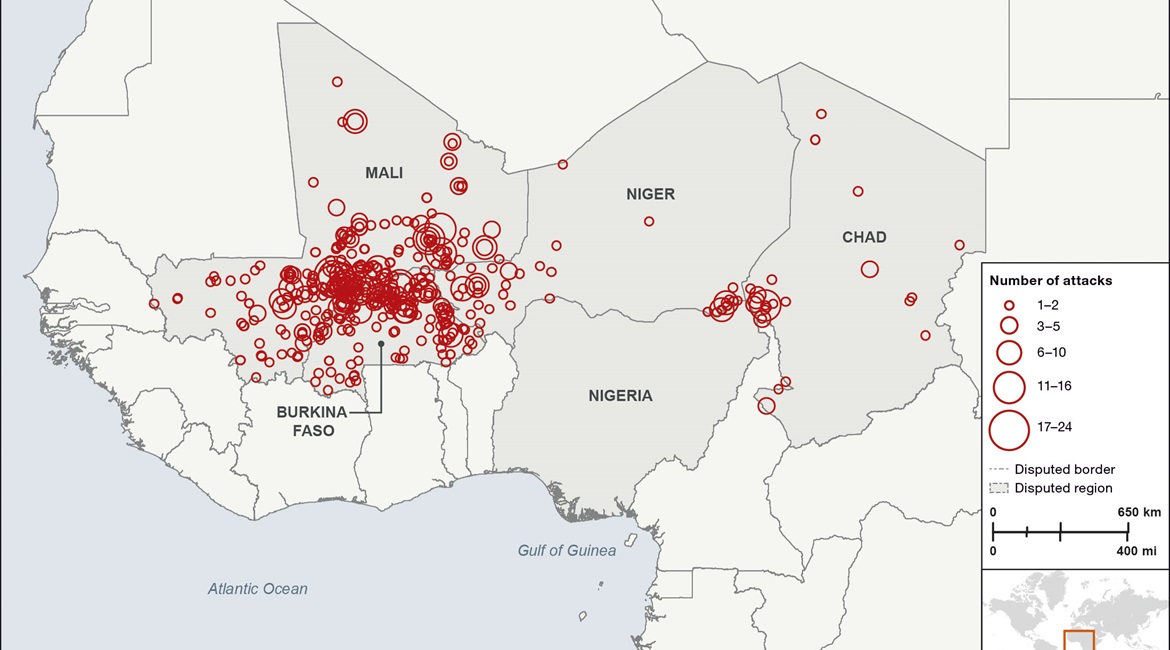
Operation ‘Barkhane’, the French-led multinational counter-terrorism operation in the Sahel, was launched in August 2014 and despite seven years of operations, the security situation in the Sahel is not improving. Notable and escalating attacks by militant Islamist groups in the first half of 2021 indicated that these groups are growing in confidence and capability.
For example, Islamic State in the Greater Sahara (ISGS) militants attacked two villages in the Tondikiwindi commune in northern Niger on 2 January, killing at least 100 civilians. Then, on 15 and 21 March, 66 and 137 people were killed respectively following raids on several villages near the border with Mali.
In Mali itself, the Al-Qaeda-affiliated Jamaat Nusrat al-Islam wal-Muslimin (JNIM) targeted foreign security forces in January, including a rocket attack on a military base in Tessalit in Kidal region, wounding 20 people including 18 Chadian United Nations peacekeepers. An improvised explosive device (IED) attack on a convoy in Timbuktu region killed four UN peacekeepers from Côte d’Ivoire on 13 January. Meanwhile, Boko Haram and its offshoot Wilayat Gharb Afriqiyya (also known as Islamic State West Africa Province, ISWAP) continue to conduct attacks in the Lake Chad basin.

Non-state armed group attacks in the Sahel, May 2019-April 2021. Data provided by Janes Terrorism and Insurgency Centre (JTIC). (©2021 Janes)
In an effort to address the worsening situation, France deployed an extra 600 soldiers to bolster the 4,500-strong Barkhane forces in 2020. The Takuba Taskforce, a special counter-terrorism unit, was formed and deployed to fight alongside the Group of 5 (G5) Sahel Joint Forces Mission, comprising Burkina Faso, Chad, Mali, Mauritania, and Niger.
Looking to read the full article?
Gain unlimited access to Janes news and more...




